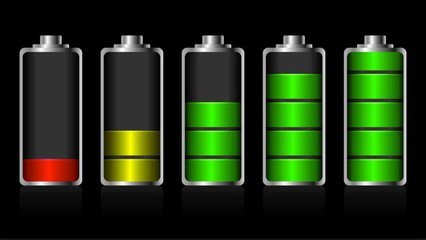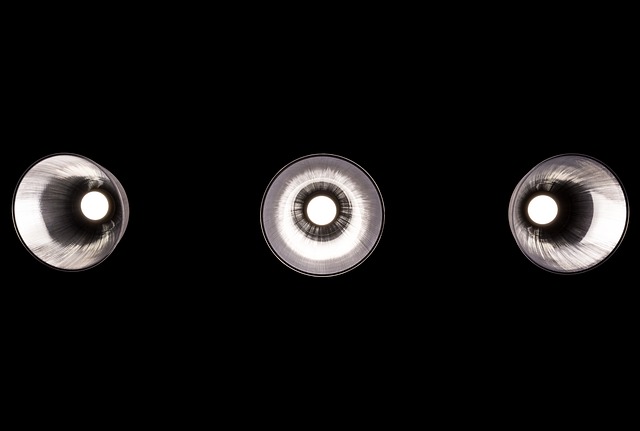Is Lithium Ion The Best Battery?
May 30, 2019 Pageview:1078
There are numerous types of batteries available in the market today. From different size to different voltages, single-use to rechargeable, there is a battery for every need of the users. But how do we decide which one is the best battery? You must have heard people saying that Lithium-Ion battery is the best one. So, here we are going to explore the aspects of a battery which makes it more suitable than any other type.
Battery Types Comparison:
There are two types of batteries, i.e. Primary and Secondary. After that, the classification is done according to the chemical compositions, sizes, use cases, form factor, and other aspects too.
1: Primary Batteries:
These batteries can’t be recharged once they start to deplete. The primary batteries are made up of electrochemical cells whose reaction can’t be reversed. It ranges from coin cells to AA batteries. Commonly, this type of battery is used in standalone products where charging seems like an impractical situation. They are typically used in Pacemakers, Animal trackers, remote controls, children toys, and wrist watches.
The most popular type of primary battery is the alkaline batteries. With high-specific energy, they are environment-friendly and cost-effective. It is the low load current which limits their use to devices which has a low current requirement. Otherwise, they might last for years safely.
2: Secondary Batteries:
These batteries are made up of the electrochemical cells which reaction can be reversed by passing a certain amount of voltage in the reverse direction. That’s why they are commonly called rechargeable batteries. They are used to power portable electronic devices including mobile phones and other appliances which need heavy-duty batteries. Even though they seem expensive for a one-time cost, but they are better for the long-run.
The four major categories of rechargeable batteries include Lithium-ion, Nickel-Cadmium, Nickel-Metal Hydride, and Lead-Acid batteries. Among these, the most popular ones are Lithium-ion batteries. These batteries even have military applications andspecial application due to their impressive characteristics.
How Does a Lithium-Ion Battery Work?
To understand how the Lithium-ion battery works, you have to understand a few terms, i.e. Anode, Cathode, separator, electrolyte, and two current collectors. The cathode and anode store Lithium and the electrolyte carries the positive-charged lithium ions from anode to cathode and vice versa. This is done with the help of a separator.
When the lithium-ions moves, it creates free electrons on the Anode which creates charge at the positive current collector. Then the electric current flows through the device from the positive current collector to the negative current collector. The separator prevents the flow of electron side the battery.
When the battery discharges, it provides electric current as the anode transfers the Lithium ions to Cathode. It generates a flow of electron from one side to another. When you charge the battery, Lithium ions are transferred from Cathode to Anode.
Advantages & Limitations of the lithium-ion battery:
The working of Lithium-ion battery sounds really easy. But to gain the benefits, several measures for protection also need to be taken. That’s why; there are numerous advantages of the Lithium-ion battery as well as disadvantages. At present, it is highly unlikely that you will find something in this world that doesn’t have a good and a bad side. So, let's explore the yin and yang of Lithium-ion batteries.
Advantages:
· High-Energy-Density:
One of the main advantages of the Lithium-ion batteries is that they can provide much higher energy density than any other type of batteries. It means they can last for a longer period while consuming more power.
· Self-Discharge:
The main problem with the rechargeable batteries is that they have a particular discharge rate. Luckily, Lithium-ion batteries have a low discharge rate than Ni-Cad or NiMH batteries.
· Low-maintenance:
Lithium-ion batteries don’t really need to be maintained regularly to ensure high performance. Even the memory effect on the batteries is almost negligible. Hence, they live longer without any major maintenance requirement.
· No need for Priming:
Other batteries need priming after their first charge as the electrolyte settle down. But Lithium-ion batteries don’t need this as the electrolyte is dispersed through the whole cell even when it is not used.
· Variety of Options:
You don’t have to rely on just one battery to run courses of all appliances or tools. There is a separate battery for your phone, electric bike, and other power tools too. And they provide high current density to the devices in the right amount.
That’s why Lithium-ion batteries are considered as an ideal option for most of the electric devices.
Disadvantages:
· Protection Needed:
These batteries are not robust hence you need to take care of the charging and discharging. If the safe limit is crossed, then you’ll have to dispose of the batteries. But luckily, even this disadvantage has been overpowered. The modern integrated circuit makes sure that the batteries don’t cross the safe limits.
· Aging:
Lithium-ion batteries suffer from aging issues. The age is determined by the time and the number of discharge cycles of the battery. They can withstand 500-1000 discharge cycles before the capacity starts to decline.
· Transportation:
As the batteries can be dangerous, you can’t transport them by air. Even the bulk shipments have its limitations. It can only be transferred via ships as they can cause fire and explosion.
· Cost:
The major drawback of the batteries is their price. They are 40% costlier than the Nickel Cadmium battery. It is because of their widespread use and their high energy and power density functions.
· Immature Technology:
Even though the Lithium-ion batteries have been in the market for many years, it is still considered as an immature technology. It is still being developed as no one has identified the true potential of these batteries.
As you can see, there are certain risks of using Lithium-ion batteries. But if you look closer, then you will realize that the disadvantages are merely an excuse to compromise with the quality of batteries. So, if want to buy the best quality Lithium-ion batteries, then Large power is the world’s leading manufacturer and distributor of these batteries.
- Prev Article: Where to throw away lithium battery
- Next Article: Energy Density Of Lithium Ion Batteries
Leave Message
Hottest Categories
-
Hottest Industry News
-
Latest Industry News












